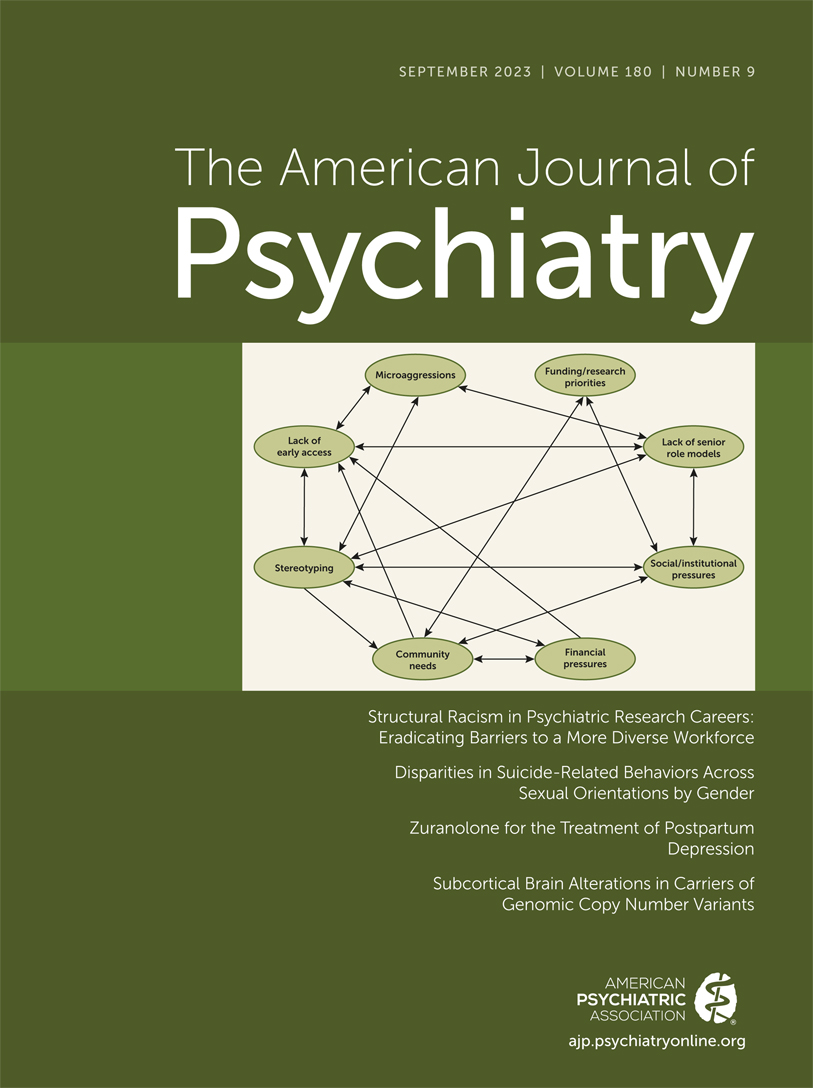Zuranolone for the Treatment of Adults With Major Depressive Disorder: A Randomized, Placebo‐Controlled Phase 3 Trial
Abstract
Objective:
This study assessed the efficacy and safety of a 14-day treatment course of once-daily zuranolone 50 mg, an investigational oral positive allosteric modulator of the γ-aminobutyric acid type A (GABAA) receptor, for the treatment of major depressive disorder.
Methods:
Patients 18–64 years of age with severe major depressive disorder were enrolled in this randomized, double-blind, placebo-controlled trial. Patients self-administered zuranolone 50 mg or placebo once daily for 14 days. The primary endpoint was change from baseline in total score on the 17-item Hamilton Depression Rating Scale (HAM-D) at day 15. Safety and tolerability were assessed by incidence of adverse events.
Results:
Of 543 randomized patients, 534 (266 in the zuranolone group, 268 in the placebo group) constituted the full analysis set. Compared with patients in the placebo group, patients in the zuranolone group demonstrated a statistically significant improvement in depressive symptoms at day 15 (least squares mean change from baseline HAM-D score, −14.1 vs. −12.3). Numerically greater improvements in depressive symptoms for zuranolone versus placebo were observed by day 3 (least squares mean change from baseline HAM-D score, −9.8 vs. −6.8), which were sustained at all visits throughout the treatment and follow-up periods of the study (through day 42, with the difference remaining nominally significant through day 12). Two patients in each group experienced a serious adverse event; nine patients in the zuranolone group and four in the placebo group discontinued treatment due to adverse events.
Conclusions:
Zuranolone at 50 mg/day elicited a significantly greater improvement in depressive symptoms at day 15, with a rapid time to effect (day 3). Zuranolone was generally well tolerated, with no new safety findings compared with previously studied lower dosages. These findings support the potential of zuranolone in treating adults with major depressive disorder.
Access content
To read the fulltext, please use one of the options below to sign in or purchase access.- Personal login
- Institutional Login
- Sign in via OpenAthens
- Register for access
-
Please login/register if you wish to pair your device and check access availability.
Not a subscriber?
PsychiatryOnline subscription options offer access to the DSM-5 library, books, journals, CME, and patient resources. This all-in-one virtual library provides psychiatrists and mental health professionals with key resources for diagnosis, treatment, research, and professional development.
Need more help? PsychiatryOnline Customer Service may be reached by emailing [email protected] or by calling 800-368-5777 (in the U.S.) or 703-907-7322 (outside the U.S.).



